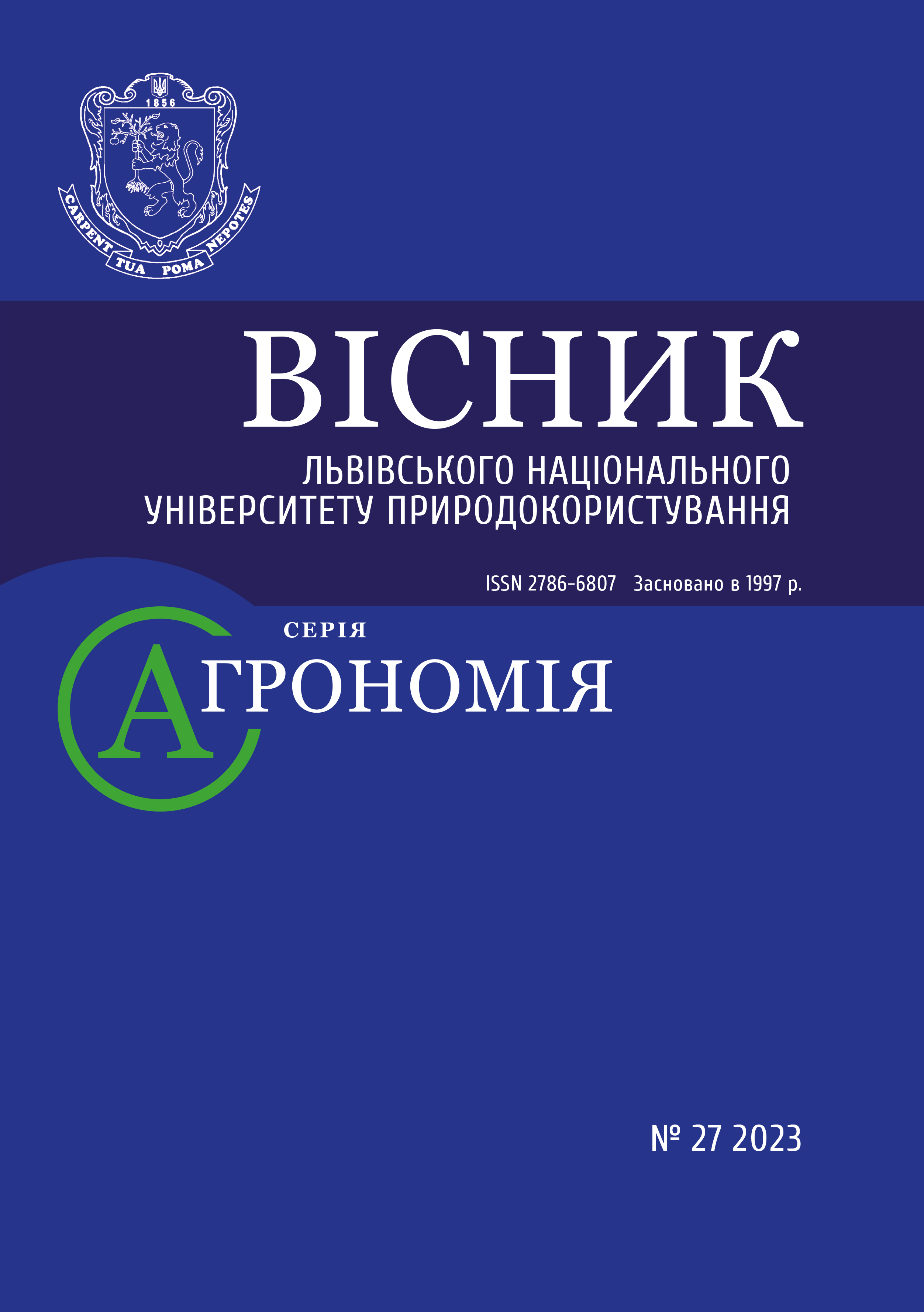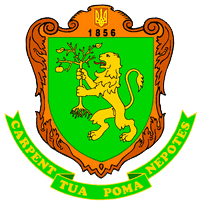INTENSITY OF THE HEAVY METALS ACCUMULATION BY SUNFLOWER SEEDS AND MEAL
DOI:
https://doi.org/10.31734/agronomy2023.27.041Keywords:
heavy metals, sunflower, content, seeds, meal, soil, concentration, pollution, monitoring, hazard, grey forest soilAbstract
The current situation shows that sunflower is still one of the most profitable products at the domestic market, which is fully saturated by its own production. The fertility of soil in Vinnytsia region provide favorable conditons for frowing sunflower, and its wide range of use contributes to a gradual increase in the area under sunflower cultivation.
The growth of sunflower acreage in Ukraine is accompanied by an increase in the application rates of mineral fertilizers and pesticides and leads to a higher risk of accumulation of toxic substances, in particular heavy metals, in its seeds and sunflower processing products.
The content of toxic substances in the soil during sunflower cultivation was investigated. The authors of the research compared the content of heavy metals of lead, cadmium, copper, and zinc in sunflower seeds and meal with their content in the soil. The obtained indicators were compared with the maximum permissible concentrations. The accumulation coefficients of heavy metals of lead, cadmium, copper and zinc by sunflower seeds were calculated. The amounts of heavy metal transfer from the soil to sunflower seeds and sunflower meal were calculated.
Among the soil chemical toxicants that can be potentially accumulated in sunflower seeds and sunflower meal, the most dangerous are lead, copper, zinc, cadmium, cesium, and cobalt. At the same time, the amount of mercury, molybdenum, boron and iron in the studied soil does not pose a danger. At the actual level of soil contamination with mobile forms of lead, cadmium, copper and zinc within 0.13–0.26 MPC, their content in sunflower seeds was 0.11–0.17 MPC. In sunflower meal, the content of studied heavy metals more increased as compared to sunflower seeds, particulalry copper – 2.9 times, lead – 1.49 times, cadmium – 1.45 times, zinc – 1.43 times. However, the actual share of such heavy metals was 0.03–0.09 MPC in relation to the maximum permissible concentration. The highest coefficient of accumulation of the heavy metals by sunflower seeds from the soil was marked for zinc – 1.81 and copper – 1.71, while for lead and cadmium, it was 0.06 and 0.12, respectively.
References
DSTU 4117:2007. Grain and products of its processing. Definition of quality indicators by infrared spectroscopy (effective since 01.08.2007). Kyiv: Subsidiary enterprise of JSC «Bread of Ukraine» «Kyiv Institute of Bread Products», 2007. 7 p.
DSTU ISO 10381-1:2004. Soil quality. Sampling. Guidelines for drawing up sampling programs. [Effective since 2006.04.01]. Kyiv: Derzhspozhyvstandard of Ukraine, 2006. Part 1. 36 p.
Kokhan A. V., Len O. I., Tsyliuryk O. I. Consequences of crop rotation saturation with sunflower. Scientific and technical bulletin of the Institute of Oil Crops of the National Academy of Sciences. 2016. No 23. P. 6.
Kuts T. V. Production and processing of oil crops in Ukraine. Scientific Bulletin of the National University of Life and Environmental Sciences of Ukraine. 2009. No 141. P. 156–161.
Mazur V. A., Tkachuk O. P., Yakovets L. A. Ecological safety of grain and leguminous products: monograph. Vinnytsia: Tvory, 2020. 442 p.
Mikhieiev V. H., Molokov A. V. Productivity of sunflower depending on the timing of sowing. Bulletin of Kharkiv National Agrarian University. 2019. No 1. P. 57–65.
Shuliak S. V., Chechet O. M., Haidei O. S., Dobrozhan Yu. V. Kobysh A. I. Monitoring the content of heavy metals in sunflower seeds and its processing products in Ukraine for 2018–2021. Scientific Bulletin of the LNUVMB named after S. Z. Gzytsky Series Veterinary Sciences. 2022. Vol. 24. No 107. P. 17–22.
Tkachuk O .P., Shkatula Yu. M., Titarenko O. M. Agricultural ecology: education. manual Vinnytsia: VNAU, 2020. 542 p.
Tkalich I. D., Hyrka A. D., Bochevar O. V., Tkalich Yu. I. Agrotechnical measures to increase the yield of sunflower seeds in the steppe conditions of Ukraine. Cereal crops. 2018. Vol 2, No 1. P. 44–52.
Totskyi V. M., Poliakov O. I. Influence of mineral fertilizers on productivity and seed quality indicators of sunflower hybrids. Scientific and technical bulletin of the Institute of Oil Crops of the National Academy of Sciences. 2011. No 14. P. 232–233.


